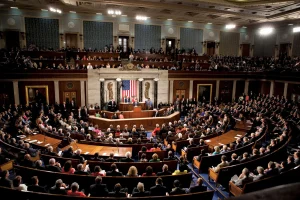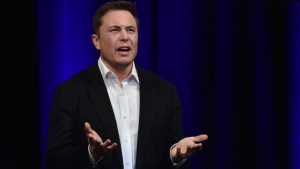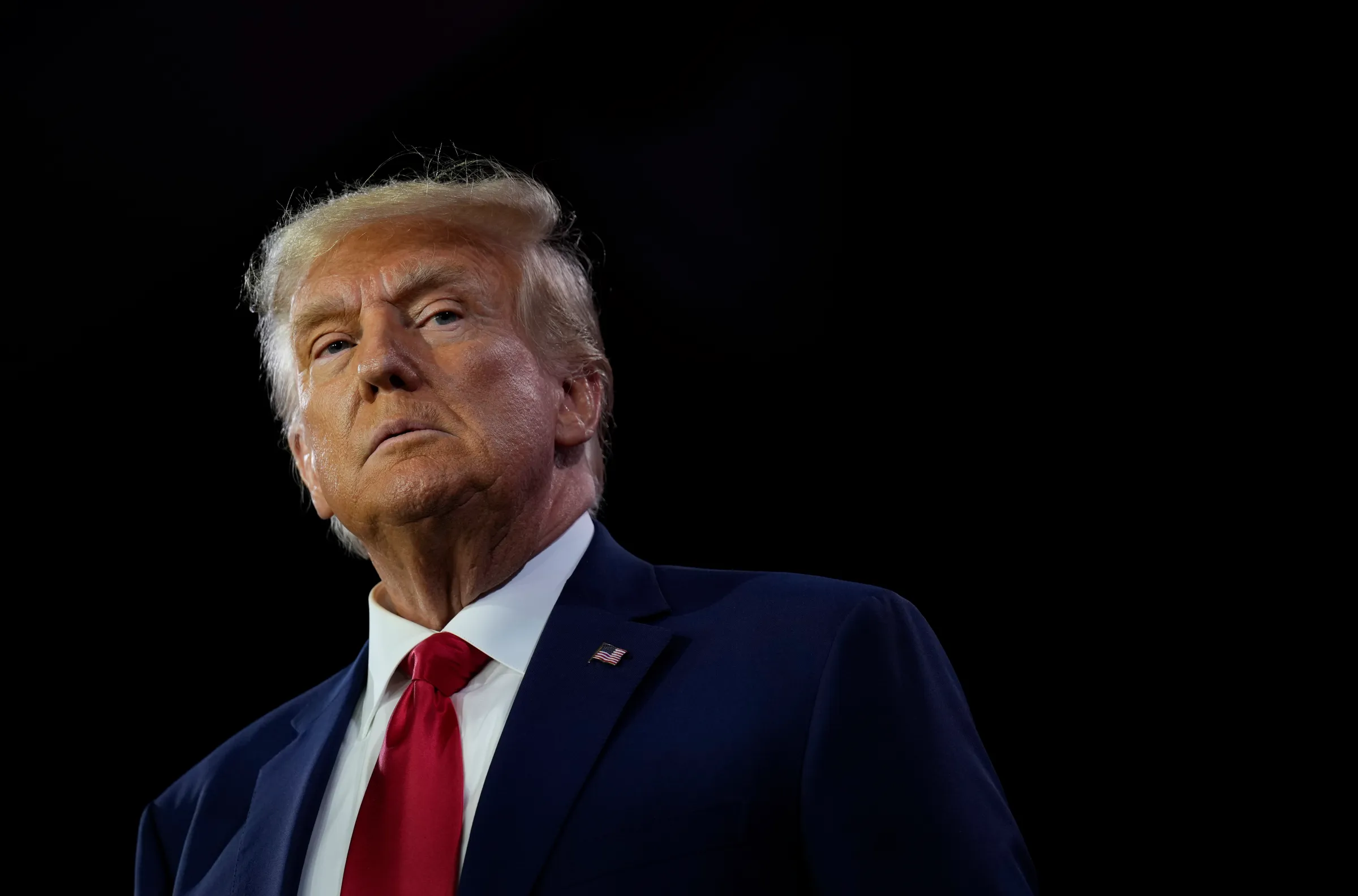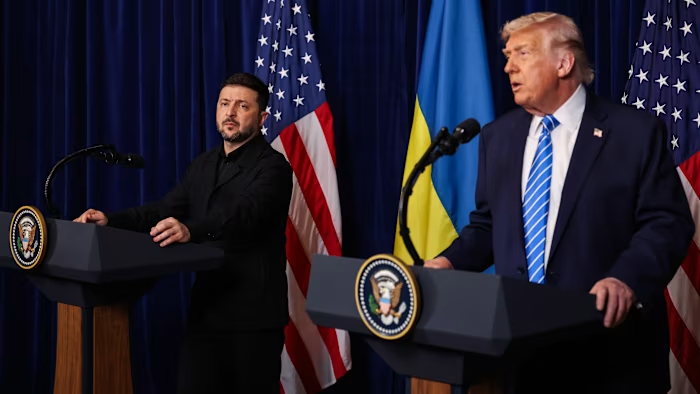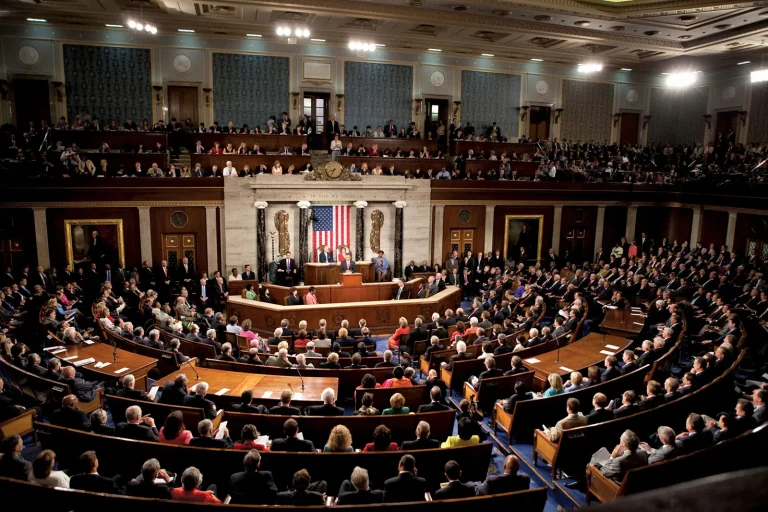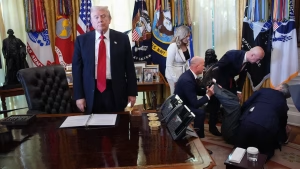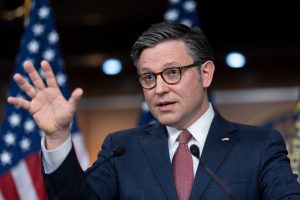A federal appeals court has revived President Donald Trump’s attempt to overturn his New York hush money conviction, ruling that a lower court must take another look at whether the case should have been moved to federal jurisdiction. The decision marks a potentially significant development in Trump’s ongoing legal battles, reopening the door to arguments that his prosecution violated presidential immunity protections.
The three-judge panel of the 2nd U.S. Circuit Court of Appeals ruled on Thursday that the lower court judge, U.S. District Judge Alvin Hellerstein, made a procedural error by not fully considering key issues tied to Trump’s motion. Specifically, the appellate judges said Hellerstein failed to evaluate whether certain evidence introduced during Trump’s state trial related to official presidential acts that could be shielded from prosecution under the Supreme Court’s 2024 immunity ruling.
While the appeals court did not issue a judgment on the merits of Trump’s claims, it sent the case back for reconsideration — a move that effectively grants Trump another chance to challenge his conviction in federal court.
The Case That Shaped Trump’s Legal Landscape
The ruling centers on Trump’s conviction in May 2024 on 34 felony counts of falsifying business records. The case involved reimbursements for payments made to adult film actor Stormy Daniels in the closing weeks of the 2016 presidential campaign — payments prosecutors argued were designed to conceal damaging allegations that could have influenced the election outcome.
Prosecutors contended that the payments, and the way they were recorded in company ledgers, constituted a scheme to mislead voters by suppressing potentially scandalous information. Trump denied any wrongdoing, insisting that the payments were personal and unrelated to campaign activity.
The case represented a historic first — the criminal conviction of a sitting or former U.S. president — and became a cornerstone of Trump’s narrative that he was the target of politically motivated “lawfare.” It was also the only one of his four criminal cases to reach trial.
Trump’s lawyers have long argued that parts of the evidence presented at trial — including testimony from former White House staff and Trump’s own communications while president — should be considered “official acts” protected by presidential immunity.
The Appeals Court’s Reasoning
The 2nd Circuit panel, composed of Judges Susan Carney, Raymond Lohier Jr., and Myrna Pérez, emphasized that Judge Hellerstein’s earlier ruling had not adequately addressed whether the use of such evidence effectively turned parts of the case into matters connected to official presidential conduct.
Their written opinion noted that the lower court “did not consider whether certain evidence admitted during the state court trial relates to immunized official acts or, if so, whether evidentiary immunity transformed the case into one that concerns official acts.”
The judges stopped short of endorsing Trump’s immunity argument but made clear that the district court must revisit the issue, particularly in light of the Supreme Court’s July 2024 decision affirming that presidents cannot be prosecuted for actions taken as part of their official duties.
What Happens Next
The decision sends the matter back to Judge Hellerstein, who will now have to determine whether the hush money case should have been transferred to federal court and whether the introduction of any evidence connected to official acts warrants broader immunity consideration.
If Hellerstein finds that Trump’s conviction relied, even in part, on official presidential acts, he could rule that the case belongs in federal court — potentially giving Trump a new path to challenge or even vacate his conviction.
The appeals court also instructed Hellerstein to evaluate whether Trump “diligently sought” the case transfer and whether such a move is still legally viable now that Trump has already been tried, convicted, and sentenced in state court.
Background of the Legal Dispute
Judge Hellerstein had twice rejected Trump’s efforts to move the case from New York state court to federal court — first after Trump’s 2023 indictment, and again after his 2024 conviction. The judge reasoned that Trump’s conduct was personal in nature and unrelated to his official presidential responsibilities.
At the heart of the dispute is the question of whether Trump’s alleged actions — and the related documentation of payments — were tied to his duties as president or constituted private conduct undertaken as a political candidate.
The defense maintains that because some of the alleged acts took place while Trump was in office, and because the prosecution introduced evidence involving his presidency, the case should have fallen under federal jurisdiction. Prosecutors, led by Manhattan District Attorney Alvin Bragg’s office, countered that the charges stemmed entirely from Trump’s personal financial dealings and campaign strategy, not his presidential role.
The Immunity Factor
Trump’s legal team’s renewed confidence stems largely from the Supreme Court’s 2024 ruling, which held that presidents and former presidents enjoy absolute immunity from criminal prosecution for official acts carried out in office. The ruling further limited prosecutors’ ability to use official acts as evidence in unrelated cases.
Trump’s attorneys argue that the hush money prosecution improperly relied on such evidence, including testimony from former White House aides about Trump’s reaction to media coverage while he was in office and his use of social media in response to the controversy.
According to the defense, introducing those elements blurred the line between personal and official behavior, violating the principles of presidential immunity.
“The president is a class of one,” Trump’s lawyer, Jeffrey Wall, told the appeals panel earlier this year. “Everything about this cries out for federal court.”
Wall, a former acting U.S. solicitor general, also accused prosecutors of rushing the case to trial before the Supreme Court clarified the scope of immunity. He argued that the trial court’s refusal to pause proceedings deprived Trump of a fair opportunity to raise his immunity defense.
The Prosecution’s Counterarguments
Prosecutors maintained that Trump’s request to move the case to federal court came far too late. Under federal law, defendants seeking removal must typically file their motion within 30 days of being arraigned.
Manhattan’s appellate chief, Steven Wu, argued that Trump’s team waited more than a year — until after the conviction — to renew their removal request, a delay that, in the prosecution’s view, undermined their legal standing.
Judge Hellerstein agreed with that position at the time, writing that Trump had not demonstrated “good cause” for seeking removal so late in the process. The appeals court, however, found that the lower court may not have sufficiently examined the broader constitutional implications before reaching that conclusion.
“We cannot be confident,” the appellate judges wrote, “that the district court adequately considered the issues relevant to whether good cause existed.”
The Broader Legal and Political Stakes
The decision injects fresh uncertainty into Trump’s legal landscape as he continues to face multiple court battles while serving as president. While the hush money case was the first to result in a conviction, Trump remains entangled in other criminal and civil proceedings related to his time in office, his business dealings, and his post-election conduct.
If the case is ultimately transferred to federal court, it could open the door to further appeals on constitutional grounds and potentially reset parts of the legal process. Legal experts suggest that such a move would not automatically erase the conviction but could set the stage for new motions or even retrial considerations if federal jurisdiction is deemed appropriate.
The timing also matters. Trump’s conviction was followed by a sentence of unconditional discharge in January 2025 — a symbolic punishment that left his record intact but carried no jail time or probation. Even so, the legal precedent and political ramifications of the case remain significant.
For Trump and his supporters, the ruling represents another validation of their claims that the prosecution was politically motivated and that state courts exceeded their authority in trying a former president.
For prosecutors, it represents another round of delays in what they argue is a straightforward criminal case involving personal misconduct, not executive privilege.
The Path Forward
Judge Hellerstein will now have to determine whether the evidence used at trial indeed included material tied to official presidential acts and whether that material should have triggered federal jurisdiction. He will also consider whether the timing of Trump’s motion meets the legal standards for reconsideration.
The process could take months, with potential for additional appeals regardless of the outcome.
While the appellate panel offered no timeline for Hellerstein’s reconsideration, the decision ensures that the hush money case — and Trump’s broader battle over presidential immunity — will remain a live legal issue deep into 2026.
A Defining Moment in Presidential Accountability
The appeals court’s ruling underscores the evolving legal debate surrounding the limits of presidential immunity and the extent to which former presidents can be held accountable for actions that intersect with their time in office.
Trump’s defense team has portrayed the immunity doctrine as essential to protecting the independence of the presidency. Critics, however, argue that extending those protections too broadly could place presidents above the law.
As the case returns to Judge Hellerstein’s courtroom, the central question will once again resurface: where does the boundary lie between personal conduct and official duty — and how far should the shield of presidential immunity extend?
Whatever the outcome, the ruling ensures that Donald Trump’s legal battles, and their constitutional implications, remain at the forefront of American political and judicial history.

Emily Johnson is a critically acclaimed essayist and novelist known for her thought-provoking works centered on feminism, women’s rights, and modern relationships. Born and raised in Portland, Oregon, Emily grew up with a deep love of books, often spending her afternoons at her local library. She went on to study literature and gender studies at UCLA, where she became deeply involved in activism and began publishing essays in campus journals. Her debut essay collection, Voices Unbound, struck a chord with readers nationwide for its fearless exploration of gender dynamics, identity, and the challenges faced by women in contemporary society. Emily later transitioned into fiction, writing novels that balance compelling storytelling with social commentary. Her protagonists are often strong, multidimensional women navigating love, ambition, and the struggles of everyday life, making her a favorite among readers who crave authentic, relatable narratives. Critics praise her ability to merge personal intimacy with universal themes. Off the page, Emily is an advocate for women in publishing, leading workshops that encourage young female writers to embrace their voices. She lives in Seattle with her partner and two rescue cats, where she continues to write, teach, and inspire a new generation of storytellers.

